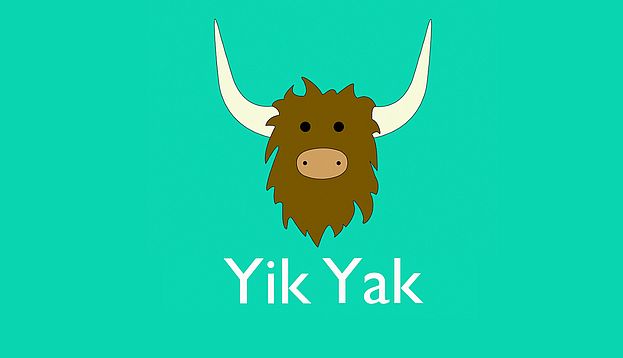Using social media can be both a blessing and a curse online. The blessing comes in the social aspect, while the burden lies in the possibility of leaked information that could easily end up in the wrong hands.
That’s why it’s curious to see more social apps that rely on deleting information while, at the same time, keeping the stance of spreading the message. Snapchat has become a reliable service when it comes to posting photos without keeping them over a prolonged period of time, and, as of late, there’s Yik Yak, a social application that enables users to come and go as they please, posting messages without giving away their real information.
The application uses close range tracking (around a 1.5 mile radius) to see what others are saying on a social front. Recently, it reached an all new plateau of popularity when Secretary of Homeland Security Jeh Johnson stopped by Scripps College, seeing the app in action. Many people were abuzz as to why a Secret Service detail was so close by.
However, that’s not to say everything is positive about the application. According to the Washington Post, Yik Yak is a “scourge” that could lead to a number of problems. The site reports that a dozen high schools and universities have run into incidents involving posts on the site, including the sharing of a recent sex tape. Some schools have even gone as far as to call it “a platform of hate speech or harassment,” in the case of Emory University’s student government.
The biggest incident as of late involved an 18-year old freshmen at Towson University, who was arrested and charged for posting a message about “Virginia Tech Part 2” on the app – a tie-in with a school shooting that had happened long before. While police didn’t find any weapons to indicate he would follow up on his promise, they felt posting the message on Yik Yak didn’t do the service any favors.
“It seems to have been posted in a moment of anger and frustration,” said Ray Feldmann, Towson’s director of communications. “But we’re in an environment now, a post-Virginia Tech world, where you just can’t make threats like that. There’s no such thing as a hoax or a prank.”
Despite these incidents, Yik Yak’s popularity continues to grow – and now it’s gotten to the point that Facebook could be working on an anonymous application of its own, according to Adweek. Co-founder Tyler Droll explained, “Facebook saw the amount of traffic and popularity Yik Yak is getting. Next to Snapchat, we’re a premier app on college campuses.”
That said, it appears there are still a number of kinks to iron out before Yik Yak – and Facebook’s possible clone – can assure safety amongst all its users.

